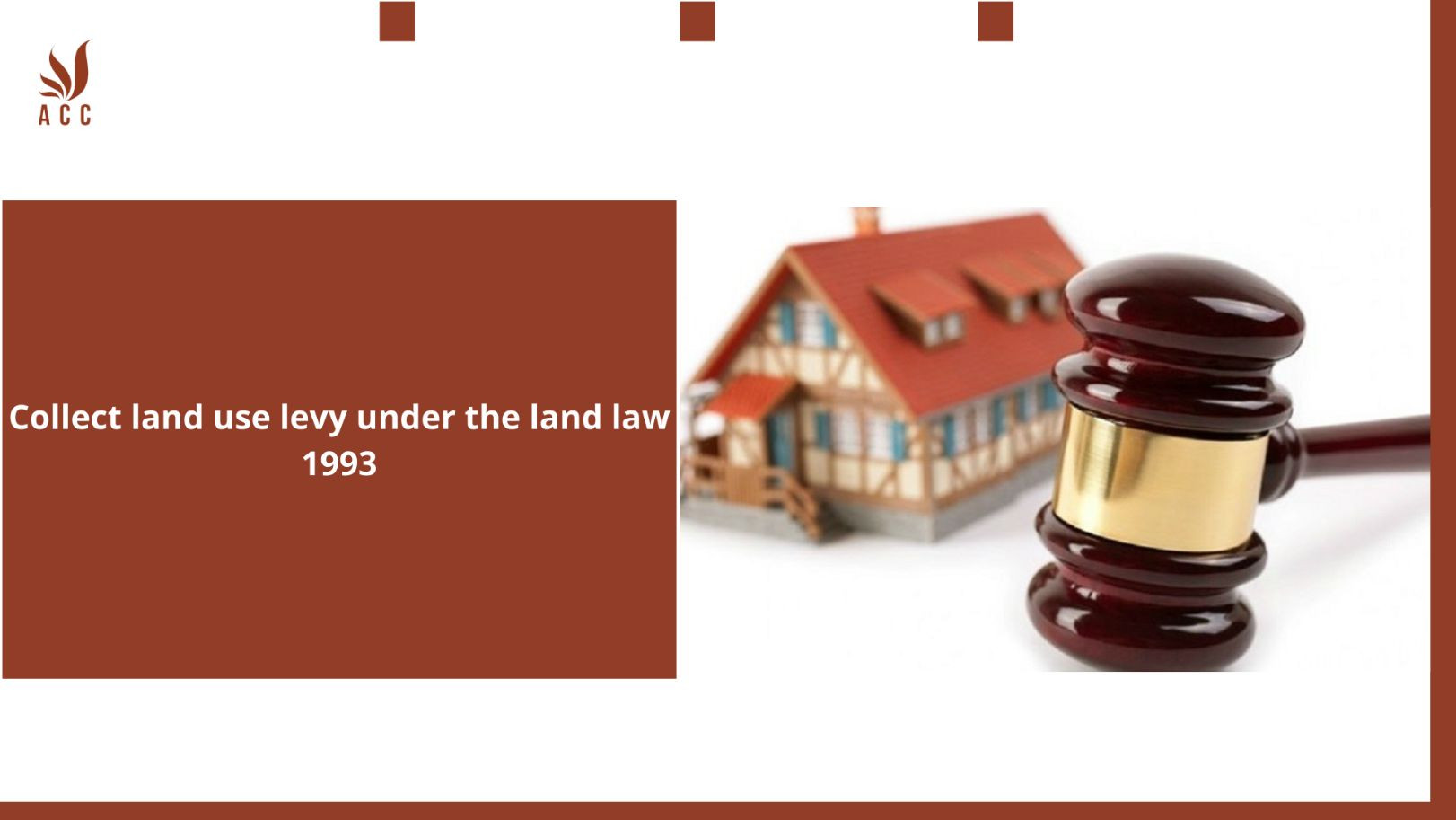Under the Land Law of 1993, land use levies were imposed as a means of collecting fees for the use of land. The specific provisions and regulations regarding land use levies would depend on the country and its legal framework. Since my knowledge is based on information up until January 2022, I can provide a general understanding of land use levies under typical land laws:

1. Purpose:
Land use levies are typically collected by government authorities for the use of land, whether for agricultural, residential, commercial, or industrial purposes. The funds collected from these levies often go towards local infrastructure development, land management, or other community benefits.
2. Calculation:
The calculation of land use levies can vary widely based on factors such as the size and location of the land, its designated use, and its potential economic value. Some areas may use a fixed rate per unit of land area, while others may assess the levy based on land value or other criteria.
3. Exemptions and Discounts:
Land laws may provide exemptions or discounts for certain categories of land use, such as agricultural land, religious or charitable organizations, or government-owned land.
4. Payment Schedule:
Land use levies are typically paid on a regular basis, often annually, semi-annually, or quarterly. The specific payment schedule is usually outlined in the land laws and regulations.
5. Penalties for Non-payment:
Failure to pay land use levies may result in penalties, interest charges, or even legal actions to recover the unpaid amounts.
6. Local Variations:
Different regions or municipalities within a country may have their own variations of land use levy regulations to address local needs and conditions.
7. Public Accountability:
In many cases, there are requirements for transparency and accountability in the collection and use of land use levies. Local governments may be required to report on the collection and allocation of these funds.
8. When using ACC Law Firm's land-related services, entrepreneurs will receive
When using ACC Law Firm's land-related services, entrepreneurs will receive expert advice and assistance in navigating various legal aspects of land ownership and transactions. This includes guidance in property acquisitions, leases, zoning regulations, land use planning, and any other land-related legal matters. ACC Law Firm's team of experienced attorneys will provide personalized support to entrepreneurs, ensuring compliance with applicable laws and regulations, protecting property rights, and optimizing the value of their land investments.
9. Q&A
Q1: What is the purpose of collecting land use levy under the Land Law of 1993?
A1: The collection of land use levy under the Land Law of 1993 serves as a source of revenue for the government, enabling the state to manage and regulate land use, and to fund public infrastructure and services.
Q2: How is the land use levy calculated and assessed under the Land Law of 1993?
A2: The Land Law of 1993 outlines the method for calculating and assessing land use levy based on factors such as the land's location, area, and intended use. The specific formula and rates can vary by jurisdiction and may be subject to updates.
Q3: Who is responsible for paying the land use levy, and when is it typically due?
A3: The obligation to pay the land use levy typically falls on individuals or entities granted land use rights. The timing and frequency of payments are determined by the land use rights granted and local regulations.
Q4: What are the consequences of non-payment or late payment of the land use levy under the Land Law of 1993?
A4: Non-payment or late payment of the land use levy may result in penalties or legal consequences as stipulated by the Land Law of 1993. These consequences can include fines, interest on overdue amounts, or even the revocation of land use rights in extreme cases.
The collection of land use levy is an important aspect of land management under the Land Law of 1993. It supports the government in its efforts to regulate land use and provide essential public services. However, the specific procedures and rates may vary by jurisdiction, so it's important to consult local authorities or legal professionals for precise details.
Nội dung bài viết:






Bình luận